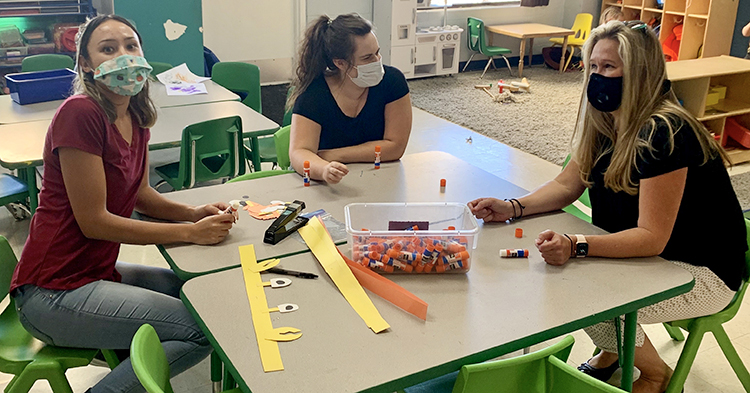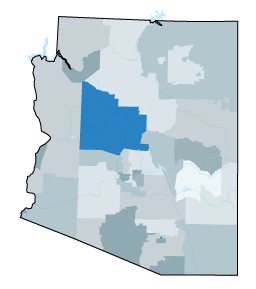
First Things First partners with families and communities to help our state’s youngest children prepare for kindergarten and beyond.
Many young children in Arizona face challenges that threaten their healthy development and learning. In the Yavapai Region, there are 12,661 children (under age 6) with 25% living in poverty.
Here is how FTF is working to support young children and their families in this region.
|
“The importance of early childhood education cannot be overstated. The first five years are critically important for brain development and the development of social skills that enhance success in school and life. All children deserve to be healthy and ready to succeed in life.” Kathy Watson |
Yavapai Regional Key Impact Highlights
[Fiscal Year 2020]

1,456 Families of newborns received the Arizona Parent Kit, filled with tips and tools to help support their child’s healthy development.
79 Families with young children participated in voluntary home visiting programs proven to reduce parental stress levels, increase connections to community supports, and improve children’s cognitive, motor, behavioral and social-emotional development.

1,951 Children attended preschools and child care programs participating in Quality First.
300 Children birth to age 5 received a Quality First scholarship to attend high-quality preschools and child care programs.
18 Early childhood educators received college scholarships to improve their qualifications for working with infants, toddlers and preschoolers.

134 Children monitored to receive appropriate screenings to detect vision, hearing and developmental issues to prevent learning challenges later on.
618 Adults attended parenting activities to learn more about the importance of early childhood development.
267 Professionals received training so that they could make developmentally appropriate recommendations for children in out-of-home care.

Yavapai Family Story
Early childhood teachers in Yavapai County learning ways to support social-emotional development of children
As an early childhood mental health consultant, every day can look different for Jodi Oen. Many days she’s observing classrooms, watching how children interact and how the educators in the classroom are responding to the children.
“Pre-COVID, I would typically go into each classroom for three hours once a week to develop relationships of trust with the teachers and with the students,” Oen said. “I am there as a resource for them.”
Although the interactions may be different in the wake of coronavirus, the goal is the same: to work with early childhood centers and preschool teachers, students and families in the Yavapai region to provide support that benefits all children in the classroom.
Read moreFTF Yavapai Regional Partnership Council
SFY20 Total Regional Program Expenditures
The FTF Yavapai Regional Partnership Council is made up of volunteers who study the unique needs of the local community and decide how funds should be used to best support the healthy development and early learning of young children birth to age 5. FTF invests in proven programs and innovative strategies through grants to community organizations that provide services to children and families. Some of the programs in this region include Parents As Teachers, Little Learners and Best For Babies.
| Quality Child Care and Preschool | $2,045,898 | 62% |
| Preventive Health | $566,682 | 16% |
| Strengthening Families | $464,120 | 13% |
| Parent and Community Awareness | $135,927 | 4% |
|
Research and Evaluation |
$92,050 | 3% |
| Workforce Development and Training | $43,165 | 2% |
| TOTAL |
$3,347,843 |

The FTF Yavapai Region covers all of Yavapai County, plus the part of the city of Sedona that lies in Coconino County. The Yavapai-Apache Nation is included in the Yavapai Region. With 38 percent of the land owned by the U.S. Forest Service, the FTF Yavapai Region is known for its four mild seasons, plentiful lakes, mountains and forest and small town atmosphere. The FTF Yavapai Region includes Legislative Districts 1 and 6. (Legislative districts are not necessarily congruent with regional boundaries.)



